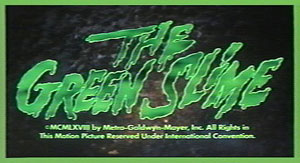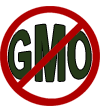Seeding Starvation in Iraq
By Jerry Mazza
Online Journal
January 4, 2007
In 2004, when L. Paul Bremer III left his position as Coalition Provisional Authority (CPA) administrator to "transfer sovereignty," he also left behind 100 deadly orders to govern Iraq. Order 81, which included "Patent, Industrial Design, Integrated Circuits and Plant Variety," prohibited Iraqis from reusing seeds of "new" plant varieties patented under the law. Think about that for a second . . .
What that order means is that seeds from those "new" varieties cannot be saved for reuse, at least not without paying a royalty to its "manufacturer," whether it's Monsanto, Dow, Dupont, or any of the other genetically-modifying seed giants. This could easily bankrupt farmers and contribute vastly to massive food shortages and starvation.
This law amended Iraq's original patent law of 1970. Until it is revised or cancelled by a new Iraqi government, it is legally binding under the hawkish wing of the colonizing CPA. Historically, the Iraqi constitution prohibited private ownership of biological resources. Yet this US-stamped patent law does just that. It introduces a plan for monopoly rights over seeds, if you can believe it.
In fact, there is a whole new chapter on Plant Variety Protection (PVP) inserted into Iraq's former patent law. Page 15 and on provide for "protection" of new varieties of plants." In it, PVP becomes an "intellectual property right" (IPR) for plants, a monopoly right on planting material (seeds) for a breeder claiming to have discovered or developed a new variety. Move over god, earth spirit, Mother Nature, whatever you wish to call creation's prime mover. Monsanto is here, changing it all. And this has nothing to do with conservation. It's about safeguarding "free market" interests, that is, the behemoths who claim they created the new plants. How's that for a hustle?
To stack up for PVP status, plant varieties must meet standards of the UPOV Convention. What then? It calls for plants to be new, distinct, uniform and stable. Of course, farmers' seeds can't meet these criteria, despite the fact that Iraqi farmers have crossbred and improved their plants under close scrutiny for 8,000 years within their fertile crescent. But then, PVP-protected seeds are the proprietary domain of corporations. And what's good for GM (genetic modification), whether from Monsanto, or its equally rapacious competitors, is good for Iraq, and soon to be the world if they have their way.
These PVP rights cover harvest material and include whole plants and parts of plants gotten from use of a protected variety. In short, we're privatizing plantdom in Iraq, the possible first step towards an all-out patenting of life forms. In fact, this law does not rule out patenting animals as well. Consider this, too, in the light of the FDA recently approving cloned cattle as suitable for consumption. It is "virtually indistinguishable" from conventional livestock. "Virtually."
And you may ask, what's the up charge of the cloning process and genetic modifications to the farmer and consumer, not to mention the downside of any deadly side effects of toying with Eden's bounty, usually without sufficient time-proved testing for safety, i.e., with what was an animal or plant modified? There is the classic case in America of a tomato's seed being modified with genetic elements of an Alaskan fish, theoretically to toughen its skin and make it stand up better to frosts. Not surprisingly, it ended up tasting like hell and having an easily-bruised skin. I guess even a tomato likes to be treated right.
Bad taste aside, this also gives "the breeder" the right to knock-off major successes of nature, whether it's a Southeast Asian strain of rice, a Georgia peach, or the incomparable Iraqi date. What's more the term of monopoly is 20 years for crops, 25 for trees and vines. During this time the PVP becomes the breeder's property, and nobody, like nobody, can plant or use this without greasing the breeder.
Therefore, Iraqi farmers can't save seeds to replant any of the varieties registered under the PVP provisions in the new pick-your-pocket (PYP) patent law. Thus, it deprives them of what they and farmers around the world justly claim as their life-given right -- to save and replant seeds.
Also, once these plants get into the agro-growth cycle, there is no recall from any possible genetic pollution. So even if you never used the seeds, and the wind simply blew them onto your land, you (1) owe the breeder a royalty and (2) if anything's wrong with the GM seed, it's your problem or the world's problem. Go sue the Big M. Is this "reconstruction" or deconstruction, economic disaster for farmers to create a financial bonanza for "breeders"?
Even when we leave Iraq, if ever, their agro-system could remain under "occupation" forever. What a horrific thought for Iraqi farmers or any farmer anywhere, including the weird old USA. But truth is our US farmers have been dug into this war for earth freedom for over a decade. In fact since GM-PVP worked here originally, the corporatos figured, why not run it in Iraq, as in India, Sri Lanka and Vietnam? Sky's the limit. Thanks Grain.org for opening my eyes. Open yours, reader. Read Grain's linked article in its entirety.
The biopiracy is homegrown
Genetic modification (GM) or genetic engineering (GE), bio-engineering, or biopiracy can all be traced back to our homegrown biotech industry. According to the article, "American People Participate in Biggest Biological Experiment Ever Conducted," the biotech hell's kitchen, along with federal regulatory agencies, has covertly converted a large fraction of our naturally grown food supply to one derived from genetically modified seeds. This has been going on since the early 90s.
GM (genetically modified) crops here in the corporate-occupied USA include corn, soybeans, potatoes and tomatoes. It's estimated that 60 percent of our processed food, some 30,000 products, contain genetically modified ingredients. Seventy million acres of our country's farmland is planted with genetically engineered crops. So, as you shed a tear for Iraq shed one for America and its farmers, who have been bucking the Mon[ster]santo and its clones.
Actually, peasants and farmers crossbred related plants or animals for hundreds of thousands of years. You can lead a horse to a donkey and get a mule, right? But you'll have a hell of a time (and for good reason) trying to get the horse to mate with an apple tree. So the key word to crossbreeding and pollination is "relatedness." That keeps it real, safe, successful. Beyond that, randomly stripping the elements from a gene and sticking them on a disparate gene or set of genes for "the hell of it," i.e., profit, is likely to give you a Frankenstein fish or a Moreau apple.
What's more, GM employs "genes from animals, plants, insects, bacteria and viruses and then artificially inserts them into the DNA of food crops." This both "bypasses gradual evolutionary process and actually creates pathways for diseases and genetic weaknesses to cross over to completely unrelated species." This can cause unexpected and even harmful changes in organisms, the humans that consume them and the environment that bears them. Here are some striking examples from psrast.org.
As Harvard geneticist Richard Lewontin said in a New York Times Magazine article (10/25/98), "There's no way of knowing what all the downstream effects will be or how it might affect the environment. We have such a miserably poor misunderstanding of how the organism develops from its DNA that I would be surprised if we don't get one rude shock after another." Again, we can thank Monsanto most notably, as well as Dow, Dupont, Novartis and others.
The irony, as Peter Rosset, director of the Institute for Food and Development Policy, wrote in a New York Times article (9/01/99), "In fact there is no relationship between the prevalence of hunger in a given country and its population. For every densely populated and hungry nation like Bangladesh, there is a sparsely populated and hungry nation like Brazil.
"The world today produces more food per inhabitant than ever before. Enough is available to provide 4.3 pounds to every person every day: two and a half pounds of grain, beans and nuts, about a pound of meat, milk and eggs and another of fruits and vegetables -- more than anyone could ever eat."
The "American People . . . " article goes on say to say, "In fact the widespread introduction of GM crops in 'developing' countries will likely exacerbate world hunger by further increasing inequality. People in poor countries lack access to funds and land that enable them to grow an adequate food supply.
"IMF/World Bank structural adjustment programs impose severe restrictions on 'developing' countries, forcing them to abandon the production of food for local use and instead focus on the growth of exportable commodities such as coffee, which are subject to wildly fluctuating world market prices. Within this framework, international lending institutions such as the World Bank place more emphasis on the development of large export directed farms at the expense of small family farms.
"The new genetically altered seeds require high quality soil, large investments in new machinery, and increased use of chemicals. Only large corporate farms are capable of meeting these requirements in 'developing' countries. Under this system, family farms suffer and people are driven off the land into urban areas where they serve as a superfluous, highly exploited and underpaid labor force for international corporations in 'free trade' zones, resulting in massive poverty."
Furthermore, GM seeds are designed almost exclusively to grow the sales of herbicides and pesticides sold by the same companies that develop the seeds. Our old "friend" Monsanto developed corn and soybeans resistant to their own herbicide "Round Up" and plans to introduce "Round Up" resistant GM wheat in the future. So these souped-up seeds will enable a farmer to spray much higher doses of "Round Up" on their crops. The EPA tripled allowable residues (that could stay on the crop) to enable "Round Up" sprayed crops to be used, even in products like baby food. Brilliant.
Fattening the bottom line
Whether in Iraq, the US, or the world, the issue is fattening the bottom line. The FDA was lulled to sleep by Bush Sr. in the early 90s, and the Intellectual Property (IP) rules became scripture within the World Trade Organization's (WTO) "free trade" agreements. Thus, Monsanto has continually bought seed companies to monopolize the seed market. If a farmer buys seeds from El Monsanto, he can't collect and use his own seeds as well for future harvests.
In fact, the demonic Monsanto created a "Terminator" seed which will grow a crop that can't generate a new seed. It was forced by public outrage to abandon that beast. But it came back with a "Traitor" technology that will turn on or off a particular trait of a plant with certain chemicals ('promoters") that only Monsanto will sell. Look forward to "Traitor" tech to hand the earth over to the big M, unless you and I help put them out of business. In fact, they call people like us "Luddites" or "those who oppose change," even of a patented evil.
So there is the future. This time the bell tolls not only for Iraq. It tolls for us all. Are you listening? Can you hear it? Plants screaming in the light. Money clinking in cash registers. Humanity caught in the chains of raped genes, spiraled-out-of-control-strands of DNA. Stop it. Demand that all GM foods are labeled as such, until their gone from the earth with the people who made them. Act now. This offer cannot be repeated. It will be strangled before you know it.


